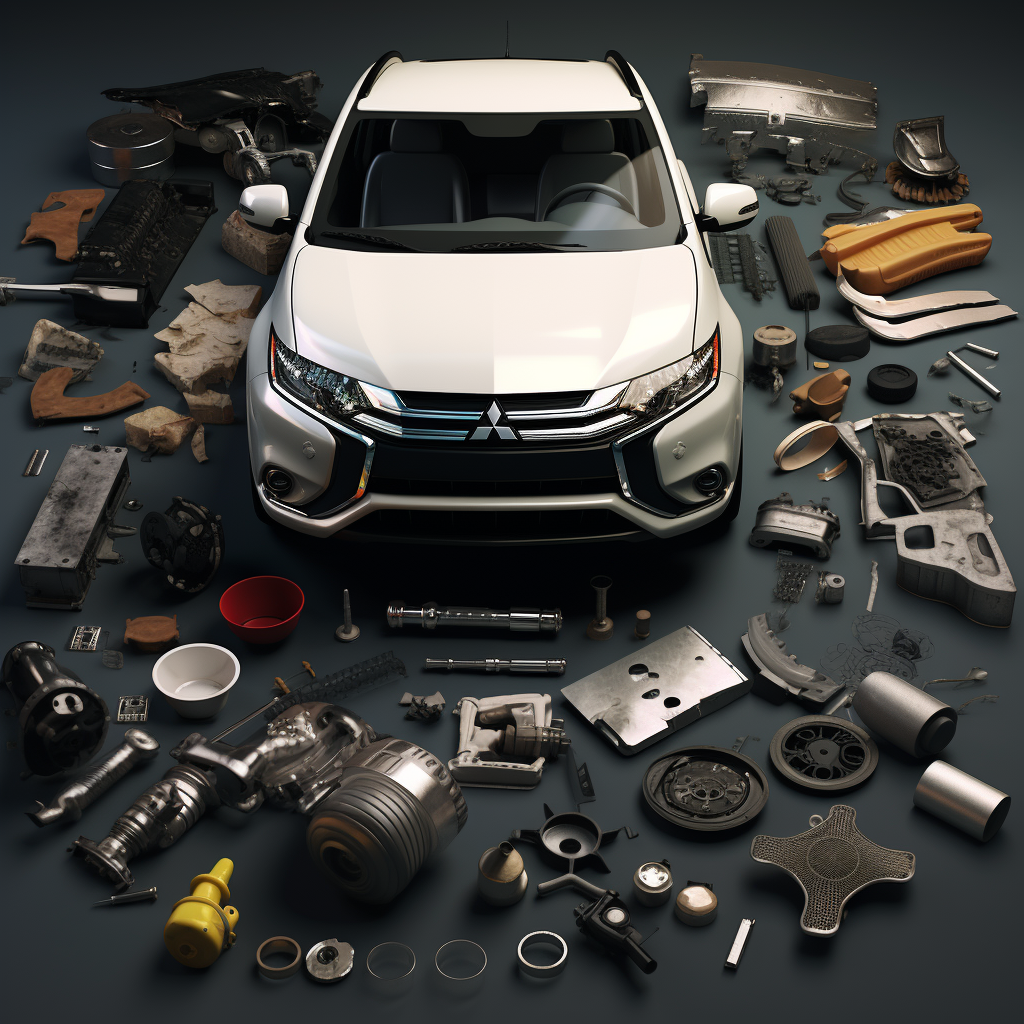
The Mitsubishi Pajero, also known as the Montero in some markets, has been a popular choice among SUV enthusiasts for decades. Known for its rugged design, powerful performance, and off-road capabilities, the Pajero has carved out a niche for itself in the competitive SUV market. However, like any vehicle, it comes with its own set of benefits and typical problems. This article aims to provide a comprehensive overview of the Mitsubishi Pajero, highlighting its main benefits and common issues.
Benefits of the Mitsubishi Pajero
1. Outstanding Off-Road Capabilities 🚙
One of the standout features of the Mitsubishi Pajero is its exceptional off-road capabilities. Equipped with a Super Select 4WD system, the Pajero can handle a variety of terrains, including sand, snow, and mud. Its robust suspension system and high ground clearance further enhance its ability to tackle rough terrains, making it a favorite among adventure seekers.
2. Spacious and Versatile Interior 🛋️
The Pajero offers a spacious and comfortable interior, making it an ideal choice for families and long-distance travelers. With ample legroom and headroom, along with versatile seating configurations, the Pajero ensures a comfortable ride for all passengers. The third-row seats can be folded to increase cargo space, adding to its practicality.
3. Advanced Safety Features 🛡️
Safety is a top priority for Mitsubishi, and the Pajero is no exception. It comes equipped with a range of safety features, including multiple airbags, ABS with EBD, traction control, and stability control. Some models also offer advanced safety features like lane departure warning and forward collision mitigation.
4. Reliability and Durability 🔧
Mitsubishi's reputation for building reliable and durable vehicles is well-reflected in the Pajero. Its robust construction and high-quality materials ensure long-term reliability, making it a dependable choice for both urban and off-road driving.
5. Strong Engine Performance 💪
The Pajero is available with a range of powerful engines, including diesel and petrol options. These engines provide strong performance, whether you're driving on highways or exploring off-road trails. The SUV's towing capacity is also impressive, making it suitable for hauling trailers and boats.

Typical Problems of the Mitsubishi Pajero
1. Engine Issues ⚠️
Some Pajero owners have reported engine problems, including overheating and excessive oil consumption. These issues are often due to poor maintenance, such as neglecting regular oil changes and coolant flushes. It's crucial to adhere to the manufacturer's maintenance schedule to prevent such problems.
2. Transmission Problems ⚙️
Another common issue with the Pajero is transmission-related problems. Some drivers have experienced delayed shifting, slipping gears, and rough transitions. Regular transmission fluid changes and inspections can help mitigate these issues.
3. Suspension Wear and Tear ⚙️
Given its off-road capabilities, the Pajero's suspension system is subject to significant wear and tear. Over time, components like bushings, shock absorbers, and control arms may need replacement. Regular inspections and timely replacements can ensure a smooth and comfortable ride.
4. Electrical Issues 🔋
Electrical problems, such as faulty sensors and wiring issues, have been reported by some Pajero owners. These can lead to various malfunctions, including issues with the vehicle's lights, windows, and infotainment system. Professional diagnostics and repairs are essential to address these problems.
5. Air Conditioning Problems ❄️
Some owners have encountered issues with the air conditioning system, such as insufficient cooling or complete failure. These problems can often be traced back to a faulty compressor or refrigerant leaks. Regular maintenance and prompt repairs can keep the AC system functioning effectively.

FAQ
Q: How often should I service my Mitsubishi Pajero?
A: It is recommended to service your Mitsubishi Pajero every 10,000 kilometers or every 6 months, whichever comes first. Regular servicing helps maintain the vehicle's performance and longevity.
Q: What type of fuel is best for the Mitsubishi Pajero?
A: The type of fuel best suited for your Pajero depends on the engine variant. Diesel engines require diesel fuel, while petrol engines should use unleaded petrol. Always refer to the owner's manual for specific recommendations.
Q: How can I improve the fuel efficiency of my Pajero?
A: To improve fuel efficiency, ensure that your tires are properly inflated, use the recommended grade of motor oil, and keep up with regular maintenance. Additionally, avoiding aggressive driving and unnecessary idling can help save fuel.
Q: What are the common signs that my Pajero's transmission needs attention?
A: Common signs of transmission issues include delayed shifting, slipping gears, and rough transitions. If you experience any of these symptoms, it's important to have your transmission inspected by a professional as soon as possible.
Q: Is the Mitsubishi Pajero good for towing?
A: Yes, the Mitsubishi Pajero has a commendable towing capacity, making it suitable for hauling trailers, boats, and other heavy loads. Always refer to the owner's manual for specific towing capacities and guidelines.
Q: Can I take my Pajero off-road without modifications?
A: Absolutely! The Mitsubishi Pajero is designed for off-road adventures, equipped with a Super Select 4WD system and robust suspension. While stock models perform well, some enthusiasts opt for additional modifications to enhance off-road capabilities.